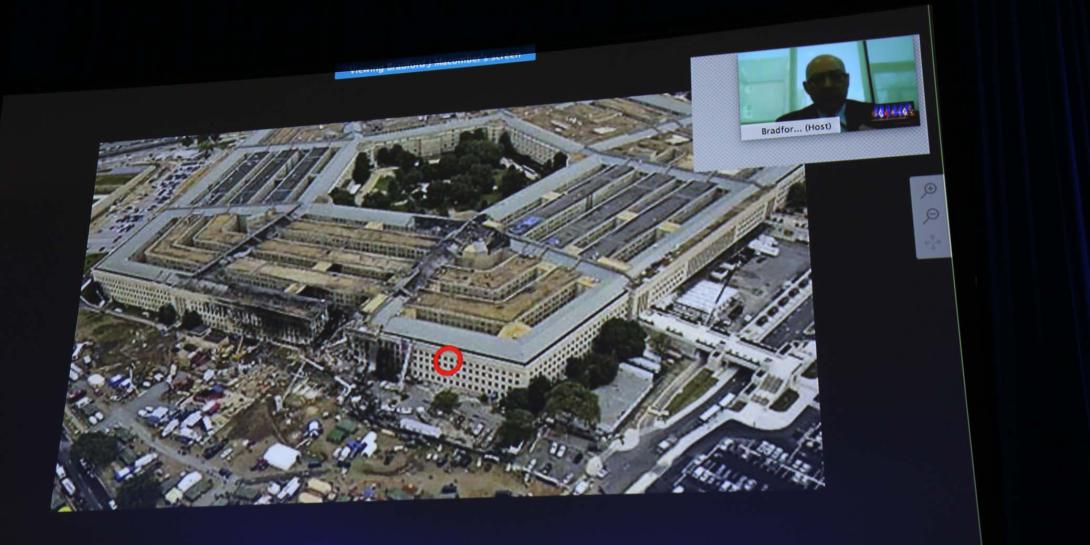Stavridis Outlines Global Threats, Opportunities to Counter at West 2017
Of all the threats facing U.S. military forces, Adm. James Stavridis, USN (Ret.), is most worried about the dynamic, manmade world of cyber. Stavridis kicked off the West 2017 conference on Tuesday, delivering a keynote that touched on a litany of threats from terrorism to the rise of conventional enemies, political gridlock, narcotics and even Mother Nature. The theme for year’s conference addresses the question: Ready for Today, Modernize for Tomorrow: How Can We Maintain the Edge?
Of all the threats facing U.S. military forces, the greatest worry for Adm. James Stavridis, USN (Ret.), is the dynamic, manmade world of cyber.
Adm. Stavridis, former NATO commander and dean of Tufts University’s Fletcher School of Law and Diplomacy, kicked off the premier naval West 2017 conference on Tuesday, delivering a keynote that touched on a litany of threats from terrorism to the rise of conventional enemies, our own political gridlock, narcotics and even Mother Nature. “But what worries me most is cyber,” Adm. Stavridis said in remarks delivered via video teleconference from Massachusetts during West 2017, co-sponsored by AFCEA International and the U.S. Naval Institute. The theme for year’s conference, which runs February 21-23 in San Diego, addresses the question: Ready for Today, Modernize for Tomorrow: How Can We Maintain the Edge?
For all the focus on the negatives and those who threaten global stability, the United States would be wise to garner the alliance of an emerging superpower leaders might otherwise be overlooking, Adm. Stavridis offered. “India is a country to look to to form alliance in the future,” he said. “India has many challenges, but [it is] a massive democracy. Over the next century, the rise of India will be more important than the rise of China.”
The United States contends with an increasingly complex and volatile world, endangered by violent extremism, for one, and North Korea’s “young, undisciplined, unpredictable and untested” leader. Global stability also is threatened by an emerging powerful Iran and Syria, he said. “Is there a big nation in the mix? Unfortunately, there is,” Adm. Stavridis said. “Russia.” That is not to say that the United States should not be cautious—to an extent—regarding China, and plan for sharp aggressive actions in the South China Sea.
#Iran, #NKorea & #Syria are 3 small nations to worry about, @stavridisj says. Is there a big country in the mix? #WEST2017
— Sandra Jontz (@jontz_signalmag) February 21, 2017
Fighting violent extremism has become a common backdrop of the 21st century, Adm. Stavridis continued. While most might narrowly associate extremism with Islamic radicals terrorizing much of the Middle East, extremism extends beyond those boundaries, Stavridis warned. For example, it struck Norway in 2011 when a right-wing Christian extremist attacked a government building and youth summer camp, killing 77. And it hit Charleston, South Carolina, in 2015 when a white supremacist shot and killed nine church worshippers.
“Violent extremism runs across societies, geographies and motivations,” Adm. Stavridis said.
"Violent extremism runs across societies, geographies & motivations," says @stavridisj during keynote at #WEST2017
— Sandra Jontz (@jontz_signalmag) February 21, 2017
The threats add to a growing list of stressors for an already stressed military, from forces having to counter narcotics trafficking and fight diseases such as the Ebola outbreak and Zika. Every 100 years, the world seems to grapple with yet another pandemic, despite sophisticated improvements in medicine and technology, Adm. Stavridis said. “We are due for another pandemic.”
One of the most important tools we can employ to secure the future is simple, @stavridisj shares with #WEST2017 attendees — it's listening
— Sandra Jontz (@jontz_signalmag) February 21, 2017
Adm. Stavridis also addressed the fluctuating political climate that has marked the first month of the new U.S. administration. In Europe, for example, allies are concerned the president’s one-time statement that NATO is obsolete and what they see as inconsistencies in U.S. policy with regards to Israel and Palestine, and the one-China policy, in which the U.S. acknowledges China's claim that there is one China and that Taiwan is part of China. “Europe craves consistency and predictability.”
That said, the new White House has been there a month and the nation must give the administration some space. “It takes time to get the gears moving,” he said, praising President Donald Trump’s pick of Lt. Gen. H.R. McMaster, USA, to be his National Security Adviser. McMaster is “brilliant, creative, the complete package,” and fills out what Adm. Stavridis termed the National Security A team.





Comments